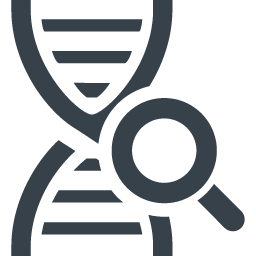 P2RY11 gene related symptoms and diseases
P2RY11 gene related symptoms and diseases
All the information presented here about the P2RY11 gene and its related diseases, symptoms, and test panels has been aggregated from the following public sources: NCBIGENE,OMIM,ORPHANET,HGNC, Mendelian Rare Disease Search Engine.
Top 5 symptoms and clinical features associated to P2RY11 gene
| Symptoms // Phenotype | % Cases |
|---|---|
| Neoplasm | Very Common - Between 80% and 100% cases |
| Brain neoplasm | Very Common - Between 80% and 100% cases |
| Sleep paralysis | Very Common - Between 80% and 100% cases |
| Hypnagogic hallucinations | Very Common - Between 80% and 100% cases |
| Paroxysmal drowsiness | Very Common - Between 80% and 100% cases |
Other less frequent symptoms and clinical features
Patients with P2RY11 gene alterations may also develop some of the following symptoms and phenotypes:Commonly - More than 50% cases
- CNS infection
- Transient global amnesia
- Abnormal rapid eye movement sleep
- Cataplexy
- Narcolepsy
- Excessive daytime sleepiness
- Hypersomnia
- Drowsiness
And 12 more phenotypes, you can get all of them using our tools for rare diseases.
Rare diseases associated to P2RY11 gene
Here you will find a list of rare diseases related to the P2RY11. You can also use our tool to get a more accurate diagnosis based on your current symptoms.
NARCOLEPSY TYPE 1
Alternate names
NARCOLEPSY TYPE 1 Is also known as gÉlineau disease, narcoleptic syndrome 1, narcolepsy-cataplexy
Description
Narcolepsy with cataplexy is a sleep disorder characterized by excessive day-time sleepiness associated with uncontrollable sleep urges and cataplexy (loss of muscle tone often triggered by pleasant emotions).
Most common symptoms of NARCOLEPSY TYPE 1
- Neoplasm
- Obesity
- Hyperactivity
- Abnormality of the eye
- Paralysis
More info about NARCOLEPSY TYPE 1
Search interest in P2RY11
Potential gene panels for P2RY11 gene
P2RY11 Panel
 United States.
United States.
By Fulgent Genetics Fulgent Genetics
This panel specifically test the P2RY11 gene.
More info about this panel United States.
United States.
If you liked this article maybe you will also find interesting the following in-depth articles about other rare diseases, like ENPEP NEB HBB TBCK HIBCH PAH TBX4